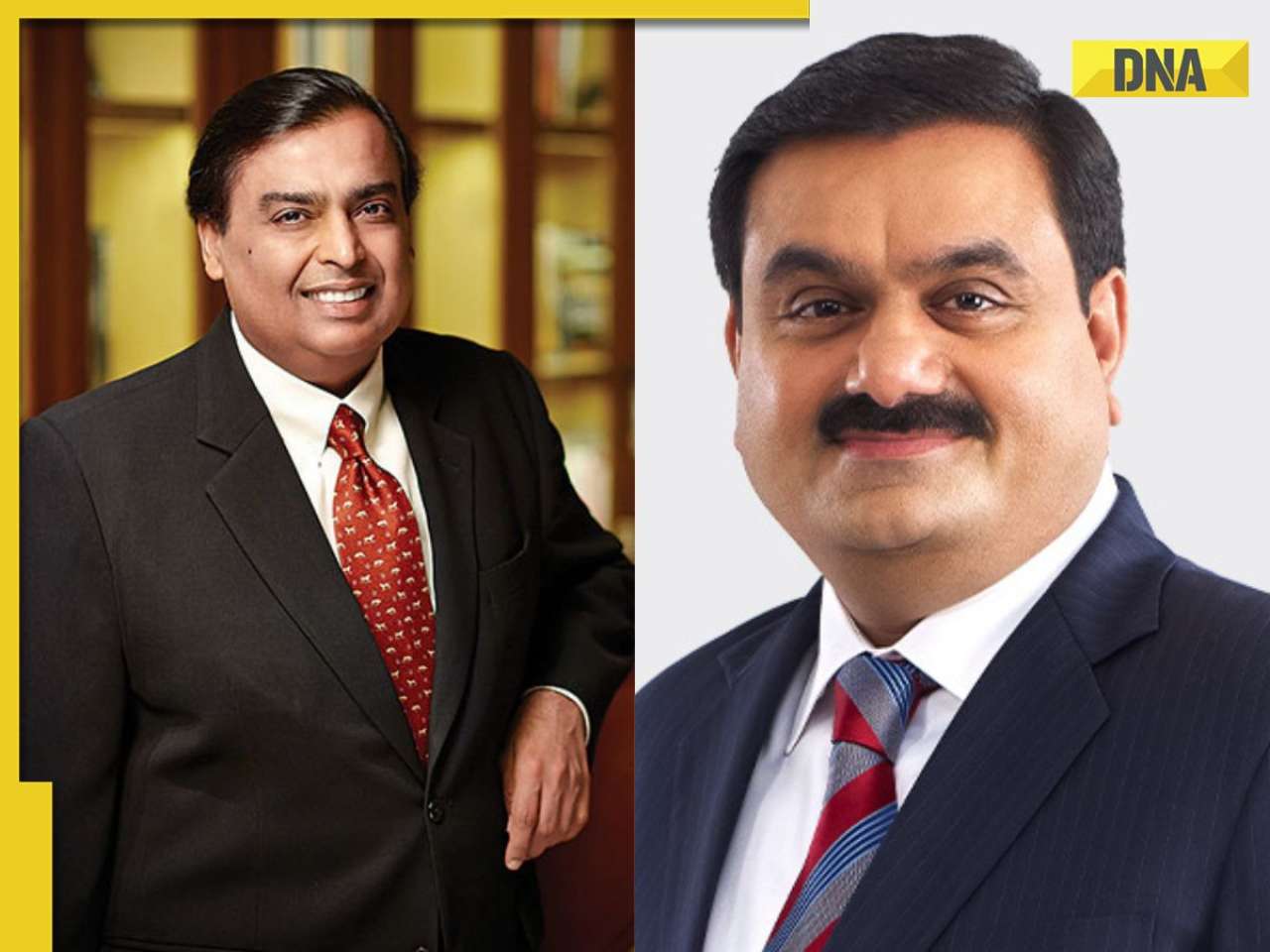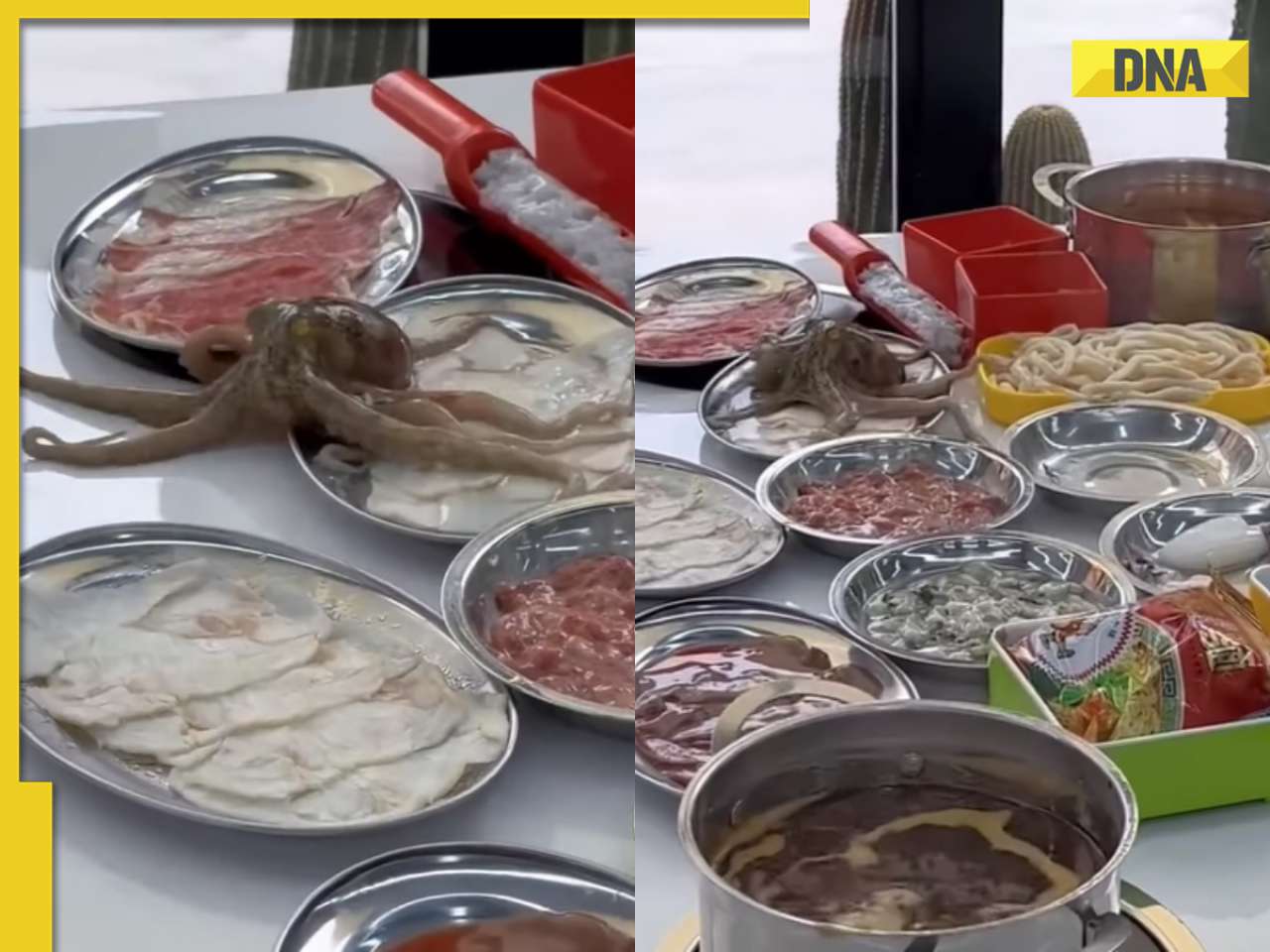Ahead of next week's talks with the Left on the stalled Indo-US civilian nuclear agreement, the UPA government has said that it hoped that "national interest" will prevail
LONDON: Ahead of next week's talks with the Left on the stalled Indo-US civilian nuclear agreement, the UPA government has said that it hoped that "national interest" will prevail and it will be able to persuade its allies who have reservations on the deal to go ahead with it.
"The Indo-US civil nuclear deal by a preponderous overwhelming public opinion is regarded as pre-eminently in the national Interest," Ashwani Kumar, Minister of State for Industry, said here.
Noting that the UPA-Left Co-ordination Committee would meet in New Delhi on May 28, Kumar, who had earlier served as Additional Solicitor General of India, hoped "we will have a better picture and understanding of the situation" after the meeting.
"I hope that interlocutors of the government will be able to persuade our allies who have reservations on the deal to go ahead with it," the minister said on Sunday evening.
Kumar said "it is just incomprehensible why this is being objected to" keeping in mind the demands for clean energy, consistent with India's commitment with the Millennium Development Goals and the requirement of an economy on the high growth trajectory.
"It is generally believed and in my personal opinion, rightly so, this is the best deal that we could have negotiated," the minister said.
Noting that if the deal has to go through, it has to be cleared "very soon", Ashwani Kumar who represented India at the World Economic Forum at Davos last year, said "I am an optimist. It is my fond hope that national interest will prevail."
Kumar said the deal, if comes through, would end India's nuclear isolation and enable "our scientists to optimally utilise our domestic capabilities to obtain additional sources of energy for our economic development.
"We are told that if the deal goes through, by 2025 we could have 20,000 megawatts of additional nuclear power as against about 3,700 megawatts of nuclear power which we have been able to produce since independence.
"20,000 MW of nuclear power is enough to bring light to every single household in the country or you can power 3/4th tubewells of small and marginal farmers in the country."
The nuclear deal is virtually in cold storage because of stiff opposition by the Left parties. Negotiations with UN atomic watchdog IAEA for the safeguards agreement have been completed but its signing is on hold pending clearance from the Left parties.
Firming up of the safeguards agreement with IAEA is a crucial step for implementation of the nuclear deal.
Four Left parties, which provide crucial outside support to the Congress-led government, are strongly opposed to the nuclear deal, insisting that it will undermine the country's sovereignty and strategic nuclear programme.
The UPA-Left committee, set up to resolve the differences, has met seven times since November last year but the government has been unable to convince them. The last meeting was held on May 6.
Referring to the spiralling inflation, for which the government has been receiving flak, Kumar said a series of measures have been taken including raids against hoarders, massive imports, ban on exports of wheat and rice, ban on future tradings in various commodities of food items.
With an expected bumper harvest, record procurement of rice and wheat and parleys with cement and metal manufacturers to roll back prices would help to bring down the rate of inflation from 7.5 per cent to 6 per cent in about 10 to 12 weeks.
"It would be an examplary record of macro economic management," Kumar said.
The minister said despite the UN-declared global food crisis, "our internal food prices are 30 per cent less than the international food prices and Government has not allowed imported inflation to affect Indian people."
He said one of the main reasons for the inflation was the "jacked up" price of the petroleum and cruide oil.
"While the demand for oil in last 2 years has risen by 1 per cent, the rise in oil price is 90 per cent in US dollars," he said.
"It is all the more that India should have an alternative source of energy. We are concerned about the prices but we have put in place every single measure to ensure inflation is contained."
"India is going to spend about 1.5 trillion dollars on education and health by 2017 and Indo-US nuclear deal is a step in that direction," Kumar said
Though the general elections are due only in May next year, the minister said the Congress party is "reasonably confident that it will very substantially improve its position, so will its allies and the next government will also be Congress-led UPA Government."
![submenu-img]() Viral video: Ghana man smashes world record by hugging over 1,100 trees in just one hour
Viral video: Ghana man smashes world record by hugging over 1,100 trees in just one hour![submenu-img]() This actress, who gave blockbusters, starved to look good, fainted at many events; later was found dead at...
This actress, who gave blockbusters, starved to look good, fainted at many events; later was found dead at...![submenu-img]() Taarak Mehta actor Gurucharan Singh operated more than 10 bank accounts: Report
Taarak Mehta actor Gurucharan Singh operated more than 10 bank accounts: Report![submenu-img]() Ambani, Adani, Tata will move to Dubai if…: Economist shares insights on inheritance tax
Ambani, Adani, Tata will move to Dubai if…: Economist shares insights on inheritance tax![submenu-img]() Cargo plane lands without front wheels in terrifying viral video, watch
Cargo plane lands without front wheels in terrifying viral video, watch![submenu-img]() DNA Verified: Is CAA an anti-Muslim law? Centre terms news report as 'misleading'
DNA Verified: Is CAA an anti-Muslim law? Centre terms news report as 'misleading'![submenu-img]() DNA Verified: Lok Sabha Elections 2024 to be held on April 19? Know truth behind viral message
DNA Verified: Lok Sabha Elections 2024 to be held on April 19? Know truth behind viral message![submenu-img]() DNA Verified: Modi govt giving students free laptops under 'One Student One Laptop' scheme? Know truth here
DNA Verified: Modi govt giving students free laptops under 'One Student One Laptop' scheme? Know truth here![submenu-img]() DNA Verified: Shah Rukh Khan denies reports of his role in release of India's naval officers from Qatar
DNA Verified: Shah Rukh Khan denies reports of his role in release of India's naval officers from Qatar![submenu-img]() DNA Verified: Is govt providing Rs 1.6 lakh benefit to girls under PM Ladli Laxmi Yojana? Know truth
DNA Verified: Is govt providing Rs 1.6 lakh benefit to girls under PM Ladli Laxmi Yojana? Know truth![submenu-img]() Alia Bhatt wears elegant saree made by 163 people over 1965 hours to Met Gala 2024, fans call her ‘princess Jasmine’
Alia Bhatt wears elegant saree made by 163 people over 1965 hours to Met Gala 2024, fans call her ‘princess Jasmine’![submenu-img]() Jr NTR-Lakshmi Pranathi's 13th wedding anniversary: Here's how strangers became soulmates
Jr NTR-Lakshmi Pranathi's 13th wedding anniversary: Here's how strangers became soulmates![submenu-img]() Streaming This Week: Heeramandi, Shaitaan, Manjummel Boys, latest OTT releases to binge-watch
Streaming This Week: Heeramandi, Shaitaan, Manjummel Boys, latest OTT releases to binge-watch![submenu-img]() Remember Ayesha Kapur? Michelle from Black, here's how actress, nutrition coach, entrepreneur looks after 19 years
Remember Ayesha Kapur? Michelle from Black, here's how actress, nutrition coach, entrepreneur looks after 19 years![submenu-img]() Remember Heyy Babyy's cute 'Angel' Juanna Sanghvi? 20 year-old looks unrecognisable now, fans say 'her comeback will...'
Remember Heyy Babyy's cute 'Angel' Juanna Sanghvi? 20 year-old looks unrecognisable now, fans say 'her comeback will...'![submenu-img]() Haryana Political Crisis: Will 3 independent MLAs support withdrawal impact the present Nayab Saini led-BJP government?
Haryana Political Crisis: Will 3 independent MLAs support withdrawal impact the present Nayab Saini led-BJP government?![submenu-img]() DNA Explainer: Why Harvey Weinstein's rape conviction was overturned, will beleaguered Hollywood mogul get out of jail?
DNA Explainer: Why Harvey Weinstein's rape conviction was overturned, will beleaguered Hollywood mogul get out of jail?![submenu-img]() What is inheritance tax?
What is inheritance tax?![submenu-img]() DNA Explainer: What is cloud seeding which is blamed for wreaking havoc in Dubai?
DNA Explainer: What is cloud seeding which is blamed for wreaking havoc in Dubai?![submenu-img]() DNA Explainer: What is Israel's Arrow-3 defence system used to intercept Iran's missile attack?
DNA Explainer: What is Israel's Arrow-3 defence system used to intercept Iran's missile attack?![submenu-img]() This actress, who gave blockbusters, starved to look good, fainted at many events; later was found dead at...
This actress, who gave blockbusters, starved to look good, fainted at many events; later was found dead at...![submenu-img]() Taarak Mehta actor Gurucharan Singh operated more than 10 bank accounts: Report
Taarak Mehta actor Gurucharan Singh operated more than 10 bank accounts: Report![submenu-img]() Aavesham OTT release: When, where to watch Fahadh Faasil's blockbuster action comedy
Aavesham OTT release: When, where to watch Fahadh Faasil's blockbuster action comedy![submenu-img]() Sonakshi Sinha slams trolls for crticising Heeramandi while praising Bridgerton: ‘Bhansali is selling you a…’
Sonakshi Sinha slams trolls for crticising Heeramandi while praising Bridgerton: ‘Bhansali is selling you a…’![submenu-img]() Sanjeev Jha reveals why he cast Chandan Roy in his upcoming film Tirichh: 'He is just like a rubber' | Exclusive
Sanjeev Jha reveals why he cast Chandan Roy in his upcoming film Tirichh: 'He is just like a rubber' | Exclusive![submenu-img]() IPL 2024: Mumbai Indians knocked out after Sunrisers Hyderabad beat Lucknow Super Giants by 10 wickets
IPL 2024: Mumbai Indians knocked out after Sunrisers Hyderabad beat Lucknow Super Giants by 10 wickets![submenu-img]() PBKS vs RCB IPL 2024: Predicted playing XI, live streaming details, weather and pitch report
PBKS vs RCB IPL 2024: Predicted playing XI, live streaming details, weather and pitch report![submenu-img]() PBKS vs RCB IPL 2024 Dream11 prediction: Fantasy cricket tips for Punjab Kings vs Royal Challengers Bengaluru
PBKS vs RCB IPL 2024 Dream11 prediction: Fantasy cricket tips for Punjab Kings vs Royal Challengers Bengaluru![submenu-img]() Watch: Bangladesh cricketer Shakib Al Hassan grabs fan requesting selfie by his neck, video goes viral
Watch: Bangladesh cricketer Shakib Al Hassan grabs fan requesting selfie by his neck, video goes viral![submenu-img]() IPL 2024 Points table, Orange and Purple Cap list after Delhi Capitals beat Rajasthan Royals by 20 runs
IPL 2024 Points table, Orange and Purple Cap list after Delhi Capitals beat Rajasthan Royals by 20 runs![submenu-img]() Viral video: Ghana man smashes world record by hugging over 1,100 trees in just one hour
Viral video: Ghana man smashes world record by hugging over 1,100 trees in just one hour![submenu-img]() Cargo plane lands without front wheels in terrifying viral video, watch
Cargo plane lands without front wheels in terrifying viral video, watch![submenu-img]() Tiger cub mimics its mother in viral video, internet can't help but go aww
Tiger cub mimics its mother in viral video, internet can't help but go aww![submenu-img]() Octopus crawls across dining table in viral video, internet is shocked
Octopus crawls across dining table in viral video, internet is shocked![submenu-img]() This Rs 917 crore high-speed rail bridge took 9 years to build, but it leads nowhere, know why
This Rs 917 crore high-speed rail bridge took 9 years to build, but it leads nowhere, know why 



















































)
)
)
)
)
)